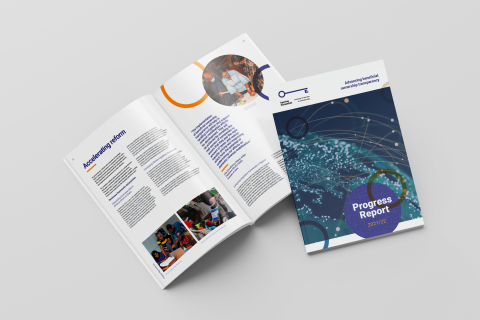
Opening Extractives
Transforming the availability and use of beneficial ownership data
Anonymous companies remain the major obstacle in the fight against money laundering and corruption. Access to quality beneficial ownership data strengthens accountability by improving governance of energy and mining revenues, supporting business and curtailing corruption and illicit financial flows.
The EITI and Open Ownership (OO) have partnered to deliver Opening Extractives, an ambitious global programme to catalyse the availability and use of beneficial ownership data. The programme combines political and technical engagement with participating countries to implement reforms on beneficial ownership disclosure in the extractive sector.
Opening Extractives aims to deliver clear improvements to domestic resource mobilisation from the extractive sector in participating countries by the end of 2025. It builds on the collaboration of OO and the EITI over the last three years in delivering workshops, training and technical assistance in a broad range of countries. The programme is supported by the BHP Foundation and USAID.
Unlocking the benefits of open data
Download our factsheet to learn more about the objectives and benefits of participating in the Opening Extractives programme.
Participating countries
News, blogs and events




Unlocking the potential of data on corporate ownership in resource-rich countries: Phase two of Opening Extractives

Doubling down on beneficial ownership transparency with the new EITI Standard

Beneficial ownership transparency: An urgent agenda in Latin America and the Caribbean

Opening Extractives launches Progress Report 2021/22

Who benefits? Harnessing company ownership data to reduce corruption
Informed by research
The design of the Opening Extractives programme is informed by primary research based on interviews with stakeholders including in-country practitioners and international beneficial ownership transparency experts. The research shows that there is both high demand for technical assistance to achieve beneficial ownership transparency, and a need for tailored support to address the complex dynamics that give rise to reform.





